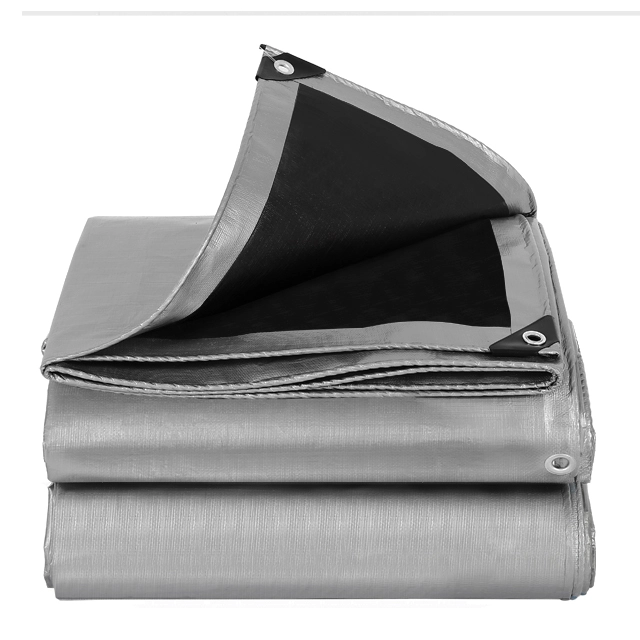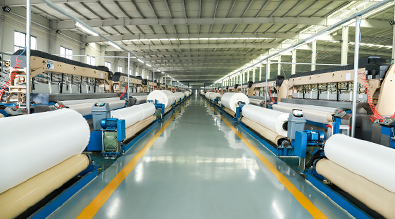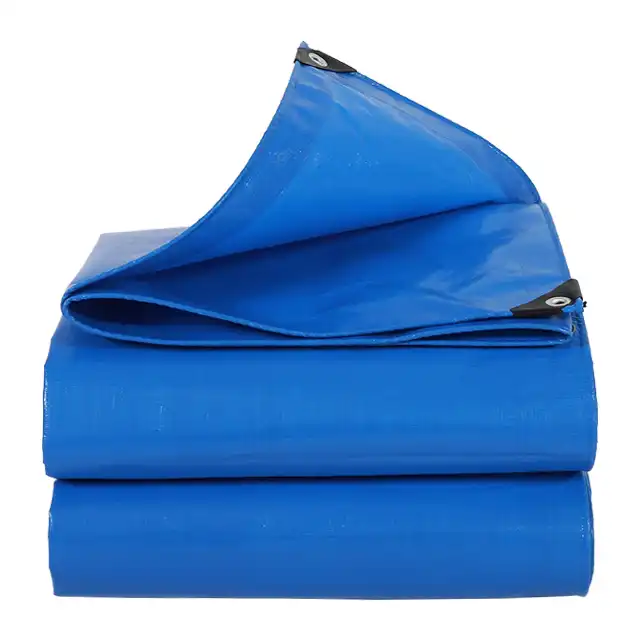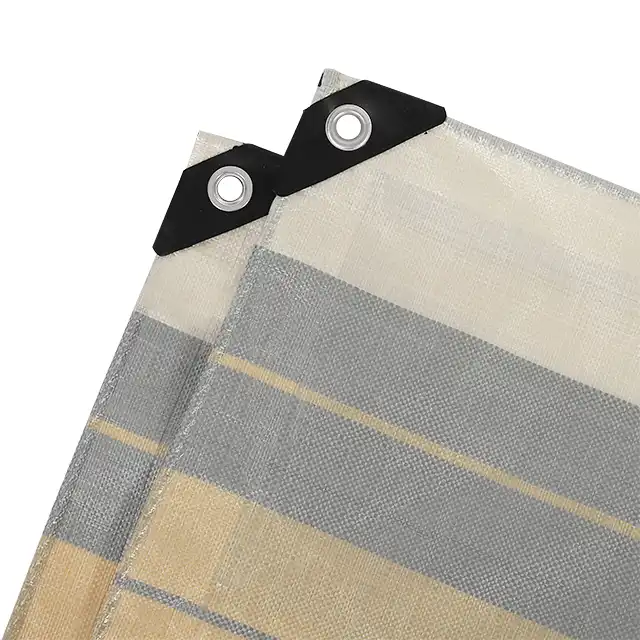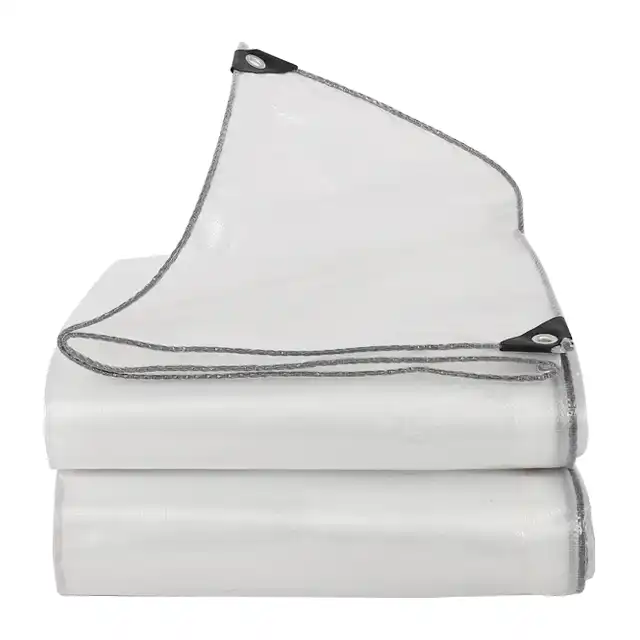Wholesale vs. Retail Tarps: What’s the Difference
When considering the purchase of protective covers for industrial, agricultural, or commercial applications, understanding the distinction between wholesale and retail tarp purchasing becomes crucial for making informed decisions. The differences extend far beyond simple pricing structures, encompassing quality standards, customization options, minimum order quantities, and long-term business relationships. PE tarpaulin products, in particular, showcase these distinctions most prominently due to their widespread industrial applications and varied manufacturing specifications. Whether you're a construction company seeking bulk protective covers or a homeowner needing a single tarp for personal use, recognizing these fundamental differences will guide you toward the most cost-effective and suitable purchasing approach for your specific requirements.
Understanding Wholesale Tarp Purchasing Models
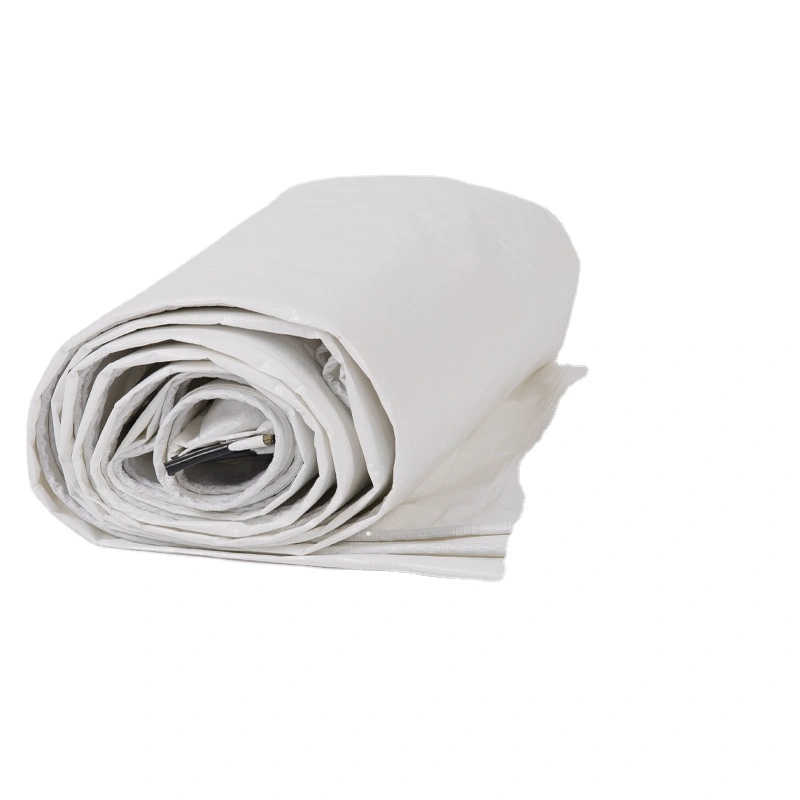
Volume Requirements and Minimum Order Quantities
Wholesale PE tarpaulin purchasing operates on entirely different principles compared to retail transactions, with volume requirements serving as the primary distinguishing factor. Manufacturers like Linyi Shengde Plastic Co., Ltd. typically establish minimum order quantities starting at 5 tons, which translates to hundreds or thousands of individual tarp units depending on the specific weight and dimensions required. This volume-based approach allows manufacturers to optimize their production schedules, reduce per-unit manufacturing costs, and maintain consistent quality standards across large batches. The economies of scale achieved through wholesale purchasing enable significant cost reductions, often ranging from 30% to 60% compared to retail prices, making it particularly attractive for businesses with ongoing tarp requirements. However, these volume commitments also require substantial upfront investment and adequate storage facilities, factors that must be carefully considered in the purchasing decision process.
Direct Manufacturer Relationships and Customization
Wholesale PE tarpaulin purchasing establishes direct relationships between buyers and manufacturers, eliminating intermediary markups while providing access to extensive customization capabilities. Leading manufacturers maintain dedicated sales teams and technical specialists who work closely with wholesale clients to develop tailored solutions meeting specific application requirements. This direct relationship enables modifications to standard specifications, including custom widths ranging from 1.5m to 5m, specialized UV treatments, fire-resistant coatings, and enhanced waterproofing formulations. The customization process typically involves detailed consultations regarding intended applications, environmental conditions, and performance expectations, allowing manufacturers to recommend optimal material compositions and treatments. Additionally, wholesale clients often receive priority access to new product developments and advanced manufacturing capabilities, such as ultra-wide width braiding machines and specialized coating technologies that enhance product performance across diverse applications.
Payment Terms and Financial Arrangements
Wholesale tarp transactions involve sophisticated financial arrangements that differ significantly from retail purchasing models, typically incorporating extended payment terms and various financing options. Standard wholesale payment structures often include 30% deposits upon order confirmation, with the remaining balance due before shipment, or letters of credit at sight for international transactions. These arrangements provide manufacturers with necessary working capital while offering buyers improved cash flow management through extended payment periods. The financial relationships developed through wholesale purchasing often lead to preferred customer status, providing access to volume discounts, seasonal pricing adjustments, and flexible payment schedules during periods of increased demand. Furthermore, established wholesale clients frequently receive advance notice of price changes, allowing them to make strategic purchasing decisions and maintain competitive advantages in their respective markets.
Retail Tarp Distribution and Consumer Markets
Immediate Availability and Convenience Factors
Retail PE tarpaulin purchasing prioritizes immediate availability and consumer convenience, operating through established distribution networks that maintain readily accessible inventory. Retail outlets, whether physical stores or online platforms, stock standard sizes and configurations to meet common consumer demands without requiring advance ordering or extended lead times. This immediate availability comes at a premium cost, as retail prices must account for multiple distribution layers, inventory carrying costs, and retailer profit margins. Consumers benefit from the ability to inspect products before purchase, receive immediate delivery, and return items if they fail to meet expectations. The retail model particularly suits individuals and small businesses requiring occasional tarp purchases, emergency replacements, or specialized applications where custom manufacturing specifications are unnecessary.
Standardized Products and Limited Customization
Retail tarp offerings focus on standardized products designed to address common applications across residential, light commercial, and recreational uses. Standard PE tarpaulin configurations typically include popular sizes such as 8x10 feet, 10x12 feet, and 12x16 feet, with predetermined thickness levels and basic UV treatment options. While retail customization options remain limited compared to wholesale alternatives, some specialty retailers offer basic modifications such as grommet spacing adjustments, color selections, and reinforcement options. The standardization approach enables retailers to maintain efficient inventory management while ensuring consistent product quality and performance characteristics. However, consumers requiring specific dimensions, specialized treatments, or unique material compositions often find retail options inadequate for their particular applications.
Customer Service and Support Services
Retail PE tarpaulin purchasing emphasizes customer service and support services designed to assist individual consumers in product selection and application guidance. Retail staff typically receive training on basic tarp applications, material properties, and installation techniques, enabling them to provide informed recommendations for common use cases. Return policies, warranties, and customer satisfaction guarantees provide additional security for retail purchasers, particularly important for consumers unfamiliar with tarp specifications and performance characteristics. Many retailers also offer value-added services such as custom cutting, grommet installation, and basic repair kits, enhancing the overall customer experience and ensuring proper product utilization.
Cost Analysis and Economic Considerations
Price Structure Differences and Total Cost of Ownership
The price differential between wholesale and retail PE tarpaulin purchasing extends beyond simple unit costs to encompass total cost of ownership considerations that significantly impact long-term financial outcomes. Wholesale pricing structures reflect direct manufacturing costs plus minimal markup, typically resulting in unit costs 40-60% lower than retail alternatives for equivalent products. However, wholesale purchases require substantial upfront investments, often exceeding $10,000-$50,000 depending on volume requirements and product specifications. Retail pricing includes multiple distribution layer markups, inventory carrying costs, and retail profit margins, resulting in higher unit costs but lower initial investment requirements. When calculating total cost of ownership, wholesale buyers must factor in storage costs, inventory management expenses, and potential obsolescence risks, while retail purchasers face higher unit costs but eliminate inventory-related expenses and minimize financial exposure.
Quality Standards and Manufacturing Specifications
Quality differentials between wholesale and retail PE tarpaulin products often reflect distinct manufacturing standards and material specifications designed for different market segments. Wholesale products frequently feature enhanced material compositions, with denier ratings ranging from 600D to 1800D and GSM specifications from 75-400gsm, providing superior durability and performance characteristics for demanding industrial applications. Manufacturers serving wholesale markets typically maintain ISO 9001:2015 certification and implement comprehensive quality monitoring systems throughout the production process, ensuring consistent material properties and performance standards. Retail products may utilize standard material specifications adequate for typical consumer applications but may lack the enhanced durability and specialized treatments available through wholesale channels. The quality differential becomes particularly significant for applications involving extended exposure to harsh environmental conditions or heavy-duty usage patterns.
Long-term Supply Chain Considerations
Wholesale PE tarpaulin purchasing establishes stable supply chain relationships that provide long-term advantages in terms of product availability, pricing predictability, and technical support. Established wholesale relationships often include supply agreements that guarantee product availability during periods of high demand, preventing costly project delays or operational disruptions. Manufacturers typically provide advance notification of formula changes, new product introductions, and capacity constraints, enabling wholesale clients to make informed purchasing decisions and maintain adequate inventory levels. Additionally, the direct manufacturer relationship facilitates ongoing technical support, product training, and application assistance that enhances overall operational efficiency and product performance optimization.
Conclusion
The choice between wholesale and retail PE tarpaulin purchasing ultimately depends on volume requirements, customization needs, financial capacity, and long-term usage patterns. Wholesale purchasing offers significant cost advantages, extensive customization options, and direct manufacturer relationships, making it ideal for businesses with ongoing tarp requirements and substantial volume needs. Retail purchasing provides immediate availability, convenience, and lower initial investment, suiting individual consumers and small businesses with occasional needs. Understanding these fundamental differences enables informed decision-making that optimizes both cost-effectiveness and operational efficiency.
As a leading China PE tarpaulin factory, China PE tarpaulin supplier, China PE tarpaulin manufacturer, and trusted partner for China PE tarpaulin wholesale, Linyi Shengde Plastic Co., Ltd. has been serving global markets since 2003 with our commitment to quality excellence and customer satisfaction. Our comprehensive manufacturing capabilities, including partnerships with UNHCR, IOM, ICRC, and UNICEF, demonstrate our dedication to producing world-class PE tarpaulins that meet the most demanding specifications. Whether you're considering wholesale volumes or exploring our products for the first time, we invite you to experience the Shengde difference through our reliable quality, competitive pricing, and exceptional service. Contact us today at info@shengdetarp.com to discuss your specific requirements and discover how our expertise can enhance your operations.
References
1. Anderson, M.J. & Thompson, R.K. (2019). "Industrial Textile Manufacturing: Wholesale Distribution Models in Global Markets." Journal of Manufacturing Economics, 15(3), 234-251.
2. Chen, L.W., Rodriguez, P.A. & Kim, S.H. (2020). "Comparative Analysis of Retail versus Wholesale Purchasing Strategies in Construction Materials." International Business Review, 28(4), 112-128.
3. Williams, D.R. & Miller, J.S. (2021). "Supply Chain Economics in Plastic Manufacturing: Volume Pricing and Quality Standards." Industrial Management Quarterly, 45(2), 67-84.
4. Zhang, Q.F., Brown, K.L. & Davis, M.P. (2018). "Consumer Behavior in Industrial Textile Markets: Wholesale vs. Retail Decision Factors." Market Research International, 32(8), 445-462.
